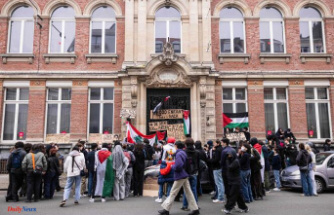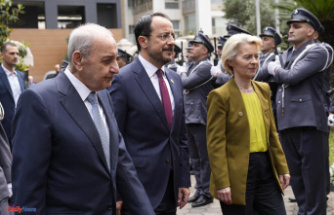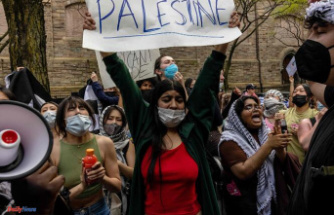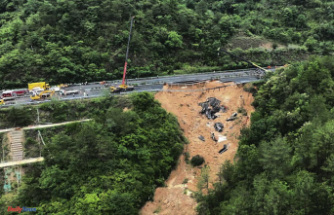The 25-year-old, still traumatized, recounted his ordeal on Wednesday in Vienna, during a meeting organized at the OSCE headquarters in Vienna.
He was helping residents evacuate the port city besieged by the Russian army in March when he was arrested and transferred to the pro-Russian separatist territory of Donetsk (east).
"It was extremely difficult", confides Igor Talalaï, evoking the blows received and the hunger which tormented him "constantly". He was allowed only a few spoonfuls of boiled oatmeal a day and a meager broth.
He also remembers a cell three by three meters where he lived locked up with 30 other people, forced to stand and some tortured with electricity.
This student, who liked to play football before the war, prefers to ignore other too painful episodes of his "88 days" of detention.
Now living in his hometown, Dnipro (center), he came to the Austrian capital to testify about the "filtration camps".
- "Terror" -
In a report published in mid-July, the Organization for Security and Cooperation in Europe (OSCE) said it was "gravely concerned" by the treatment inflicted by Moscow on tens of thousands of Ukrainians in these structures, estimated at almost 20.
The document mentions "brutal interrogations" with the recording of personal data, "humiliating body searches", and even the disappearance of those who were suspected of links with the Ukrainian forces.
Moscow assures for its part that its only goal is to allow civilians to "evacuate" from "dangerous areas".
If this system had started to be put in place after 2014 by the separatist authorities in the east of the country, it was "generalized" and developed "on a very large scale", according to journalist Stanislav Miroshnychenko, who conducted a study on the subject for the NGO Media Initiative for Human Rights (MIHR).
Also present in Vienna, Yuri Berezovsky was also detained in the Lugansk region.
"I was lucky because they let me go, but throughout the detention I lived with the fear of not knowing how it was going to end. It was the most terrible part", is recalls the 32-year-old music teacher.
By her side, Olga Tabatchouk has had no news of her 38-year-old son since he was taken to one of these centers.
"I don't know if he's alive or not. It's pure and simple terror, unthinkable in modern times," breathes the sixty-year-old.












